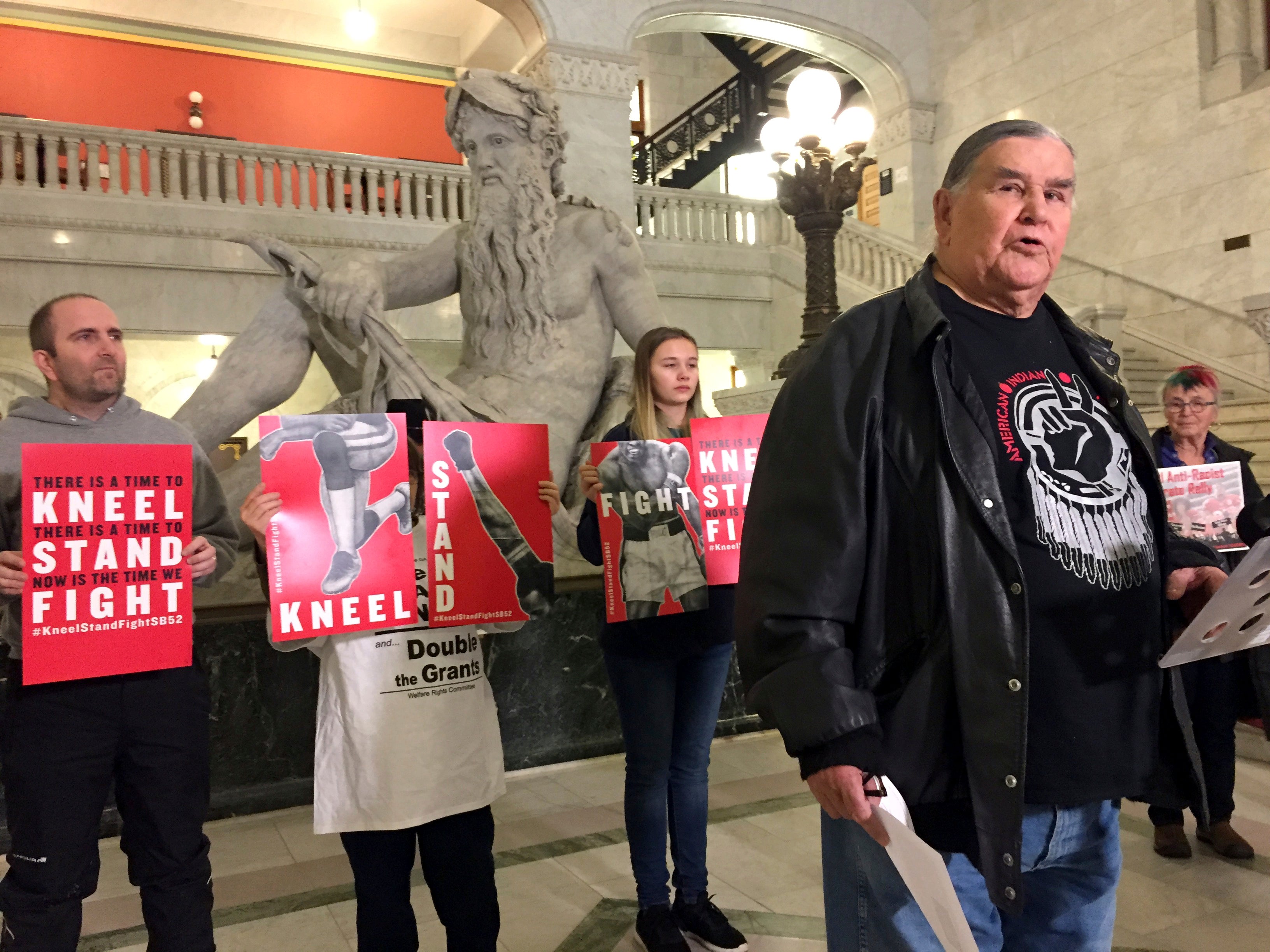American Indian Movement leader Clyde Bellecourt dies at 85
Clyde Bellecourt, a leader in the Native American struggle for civil rights and a founder of the American Indian Movement, has died

Your support helps us to tell the story
From reproductive rights to climate change to Big Tech, The Independent is on the ground when the story is developing. Whether it's investigating the financials of Elon Musk's pro-Trump PAC or producing our latest documentary, 'The A Word', which shines a light on the American women fighting for reproductive rights, we know how important it is to parse out the facts from the messaging.
At such a critical moment in US history, we need reporters on the ground. Your donation allows us to keep sending journalists to speak to both sides of the story.
The Independent is trusted by Americans across the entire political spectrum. And unlike many other quality news outlets, we choose not to lock Americans out of our reporting and analysis with paywalls. We believe quality journalism should be available to everyone, paid for by those who can afford it.
Your support makes all the difference.Clyde Bellecourt, a leader in the Native American struggle for civil rights and a founder of the American Indian Movement, has died. He was 85.
Bellecourt died Tuesday morning from cancer at his home in Minneapolis Peggy Bellecourt, his wife, told the Star Tribune Lisa Bellanger, the current co-director of AIM, also confirmed his death to The Associated Press.
“Clyde was a really good man and influenced a lot of people,” said Winona LaDuke, an American Indian activist and the executive director of Honor the Earth, a group dedicated to raising awareness for Indigenous environmental issues. “He was very influential in my life.”
Bellecourt was a co-founder in 1968 of the American Indian Movement, which began as a local organization in Minneapolis that sought to grapple with issues of police brutality and discrimination against Native Americans.
One of the group’s first acts was to organize a patrol to monitor allegations of police harassment and brutality against Native Americans who had settled in Minneapolis where AIM is based. Members had cameras, asked police for badge numbers and monitored radio scanner traffic for mention of anyone they might recognize as Indigenous to ensure their rights weren’t being violated.
The group quickly became a national force. It would lead a string of major national protests in the 1970s, including a march to Washington, D.C., in 1972 called the Trail of Broken Treaties.
At times, the American Indian Movement’s tactics were militant, which led to splintering in the group. In one of its most well-known actions, the group took over Wounded Knee on the Pine Ridge Reservation in South Dakota in 1973 to protest U.S. and tribal governments. The 71-day occupation turned violent, and two people died in a shootout.
The group called out instances of cultural appropriation, provided job training, sought to improve housing and education for Indigenous people, provided legal assistance, spotlighted environmental injustice and questioned government policies that were seen as anti-Indigenous.
Bellecourt was born and raised on the White Earth Indian Reservation. His Ojibwe name is Nee-gon-we-way-we-dun, which means “Thunder Before the Storm." He was the only remaining living founder of the AIM movement, Bellanger said.
Bellecourt was among those who protested the 1992 Super Bowl in Minneapolis, when the Washington Football Team beat the Buffalo Bills. The Washington team dropped its old name in 2020 after decades of criticism it was offensive to Native Americans and after pressure from sponsors amid a national reckoning on race in the U.S. Bellecourt long called for the team's name to be changed.
Bellanger said condolences have been coming in from around the globe.
“He was known worldwide,” she said.